Weed nuns form a convent amid Mexico’s drug war
Mexican nuns pledge to spread the gospel of the healing powers of cannabis, writes Sarah Kinosian
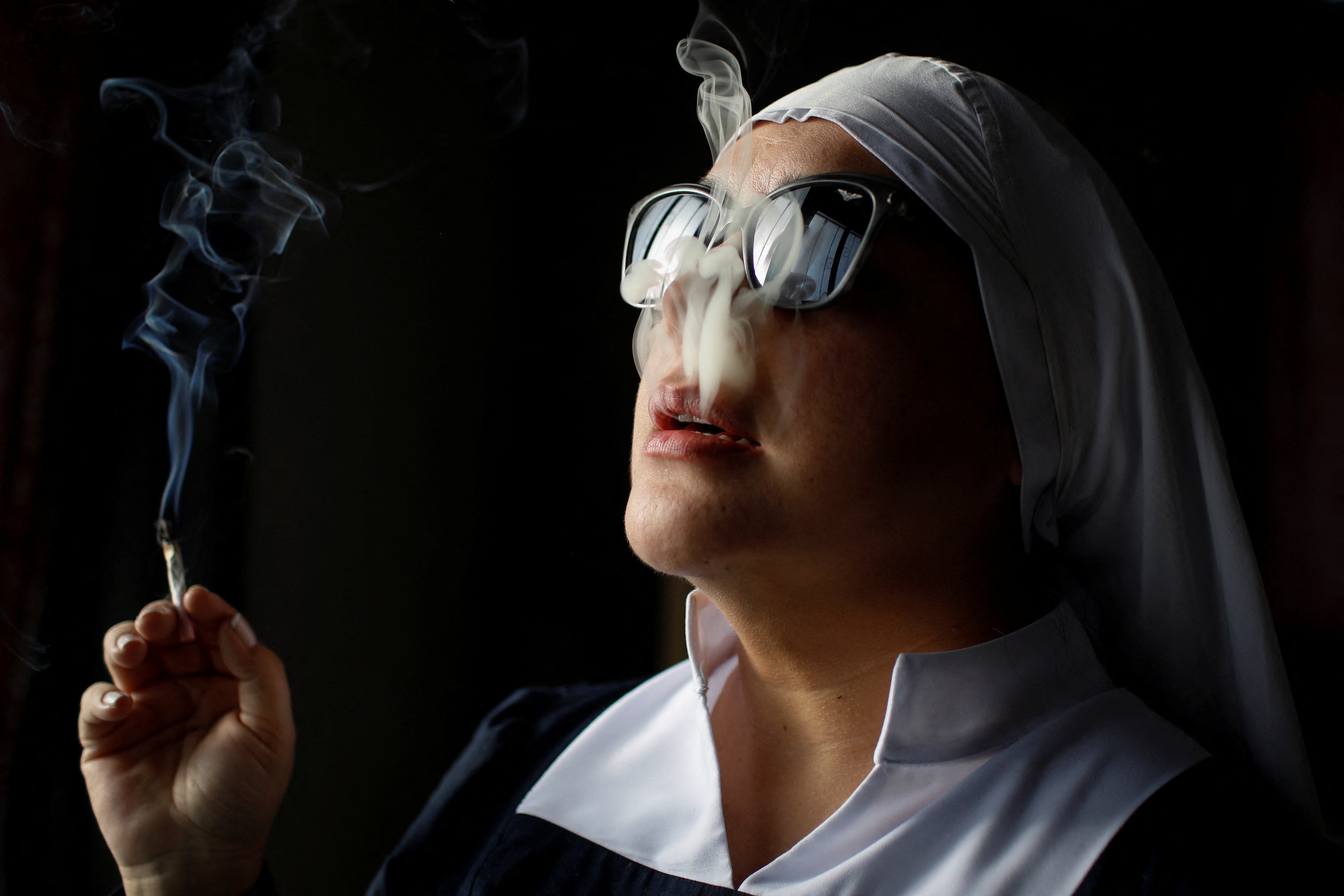
Beneath each full moon on the outskirts of a village in central Mexico, a group of women in nun habits circle a roaring fire, cleanse themselves with burned sage, and give thanks for the moon, animals, and plants.
Then they inhale deeply from a joint and blow clouds of marijuana into the flames.
Despite their clothing, the women are not Catholic or any other religion.
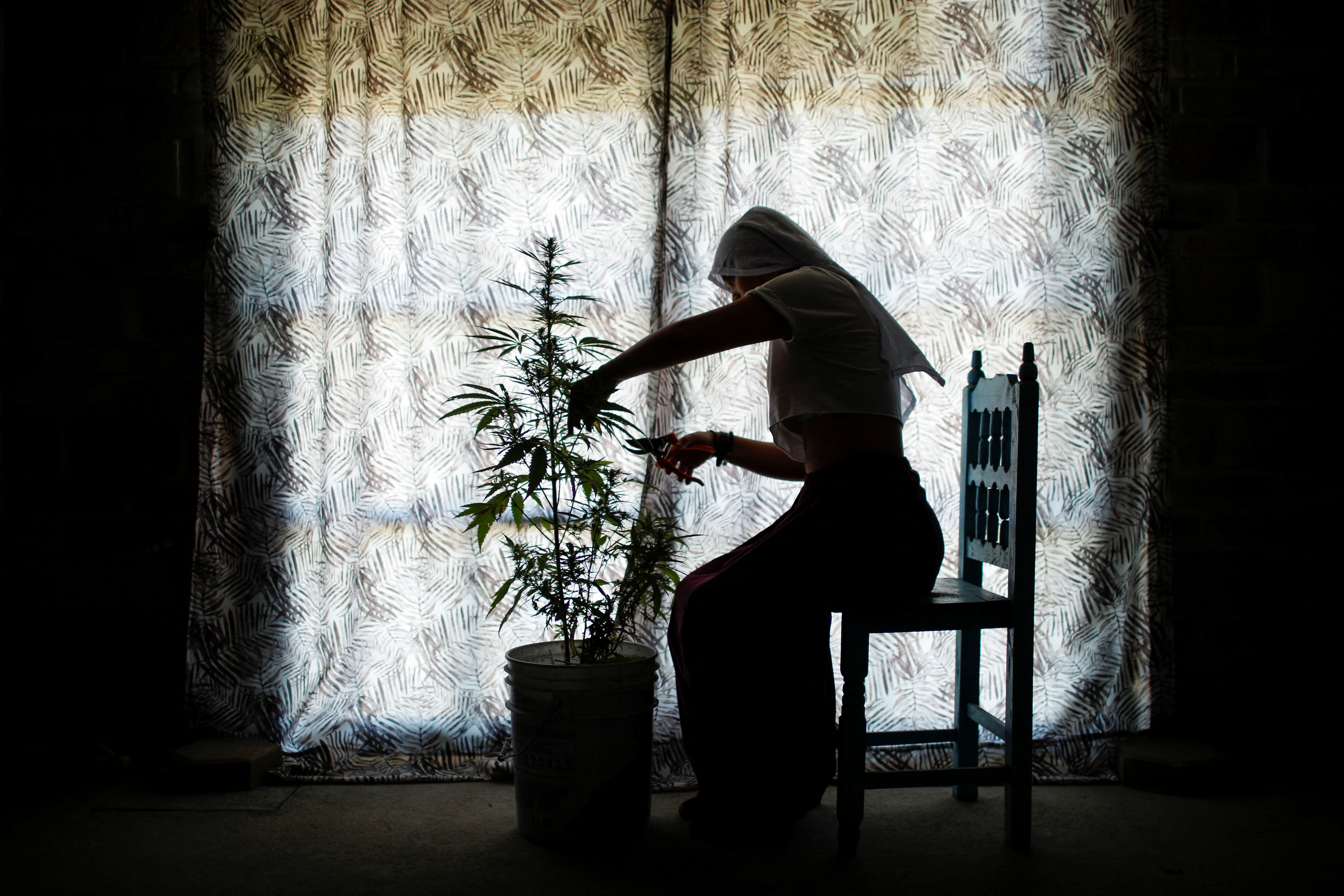
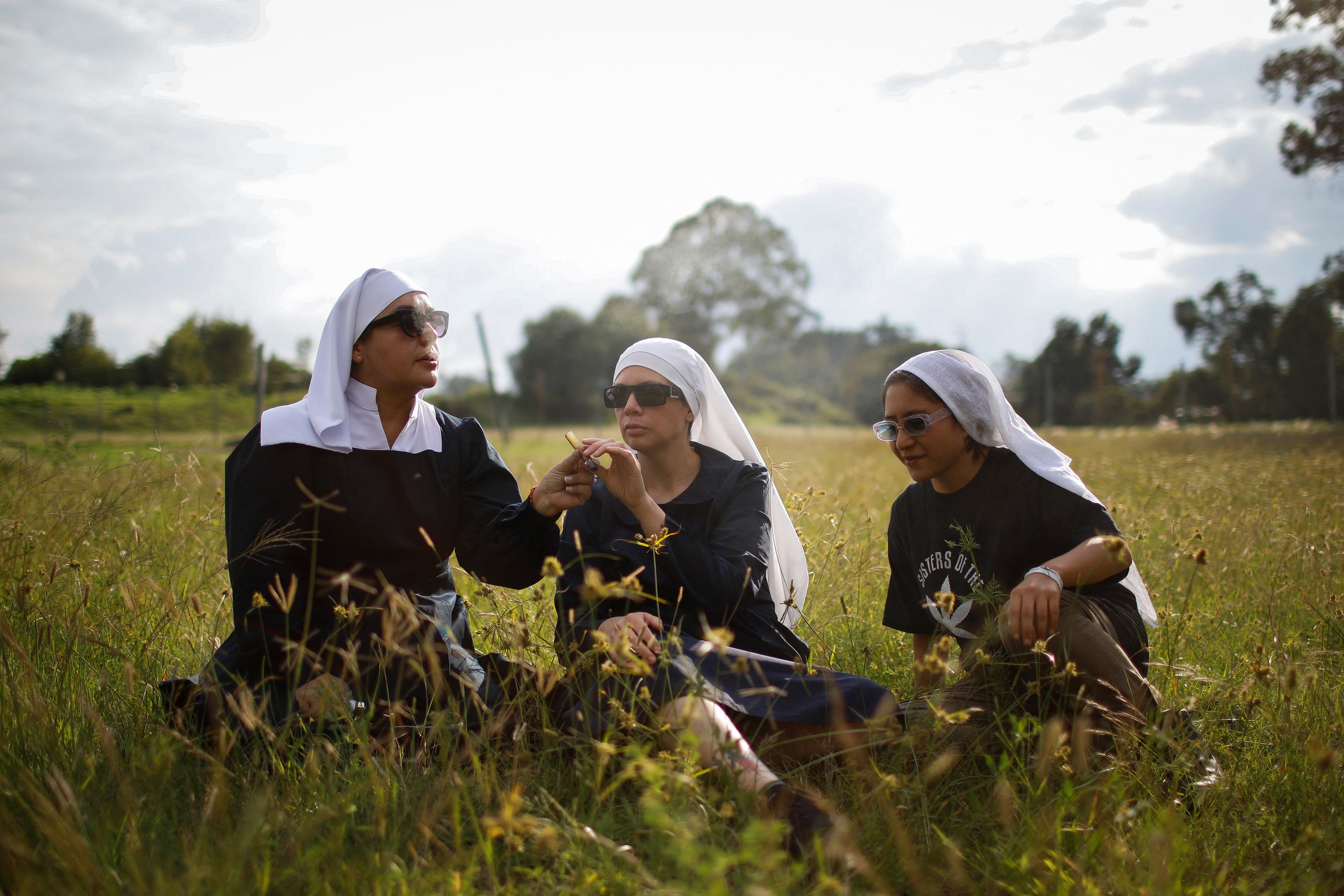
They are part of an international group founded in 2014 called Sisters of the Valley, which has pledged to spread the gospel of the healing powers of cannabis.
In the United States, where around two dozen states have legalised recreational marijuana, the group has also launched a successful small business, selling CBD tinctures, oils and salves online, and raking in over $500,000 (£392,000) last year.
But in Mexico, where a drug war has ravaged the country and Christianity is embedded in society, the image of a marijuana-smoking nun is more an act of rebellion, the women say.
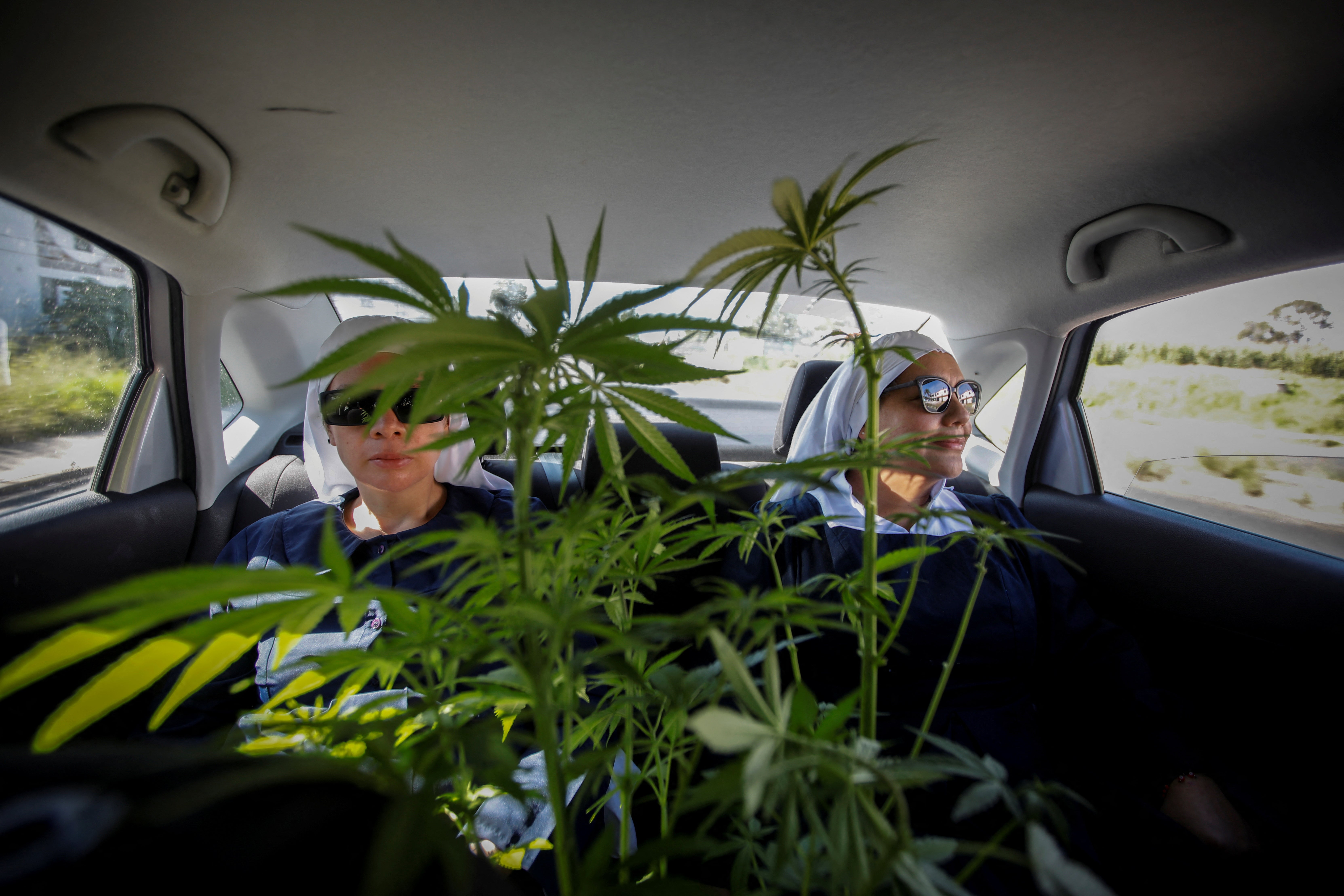
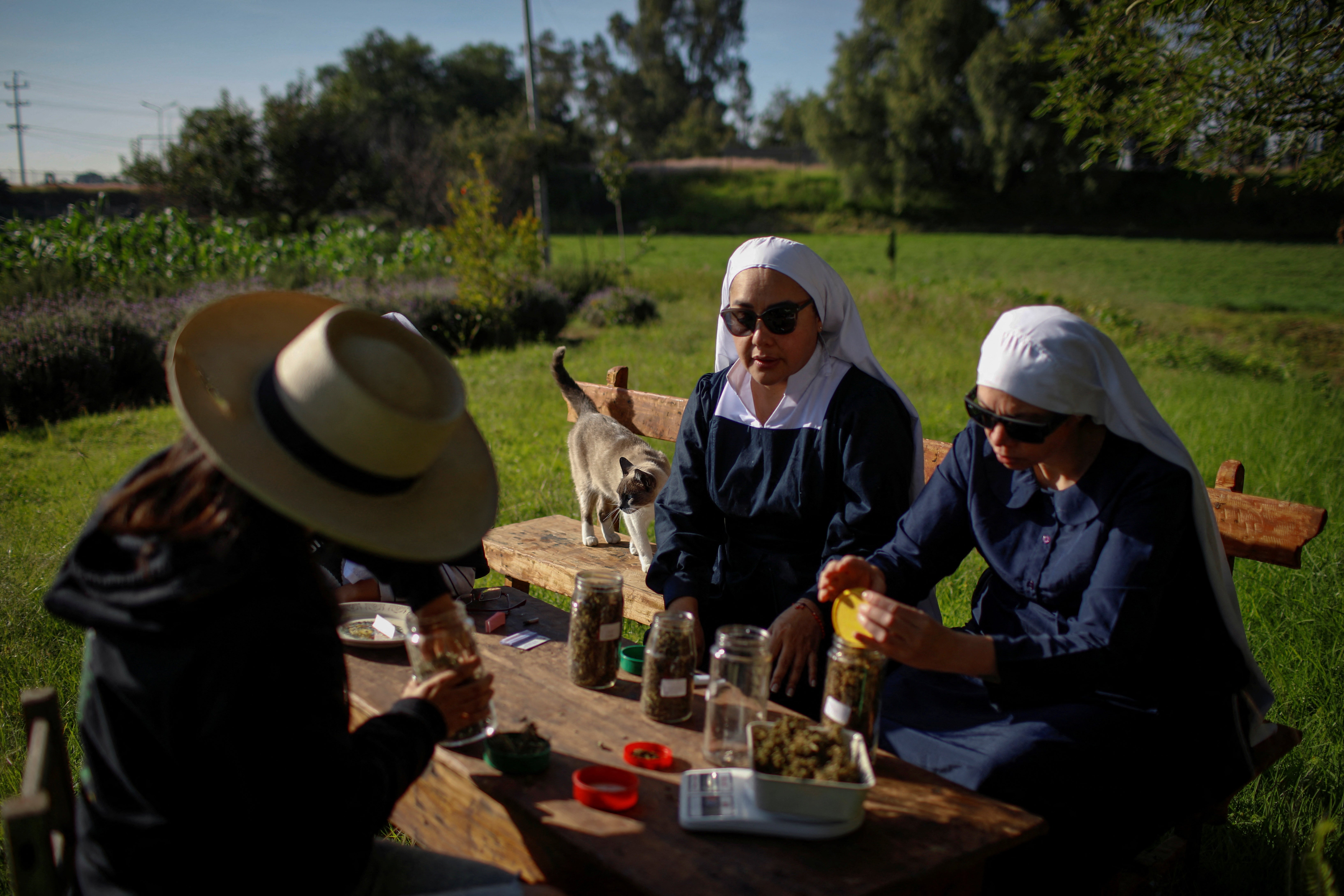
The sisters frequently post on social media, primarily Instagram, where they can be seen caring for cannabis crops, giving workshops, and attending cannabis-related events.
Their product sales are a fraction of that of their US sisters – around $10,000 (£7,900) annually.
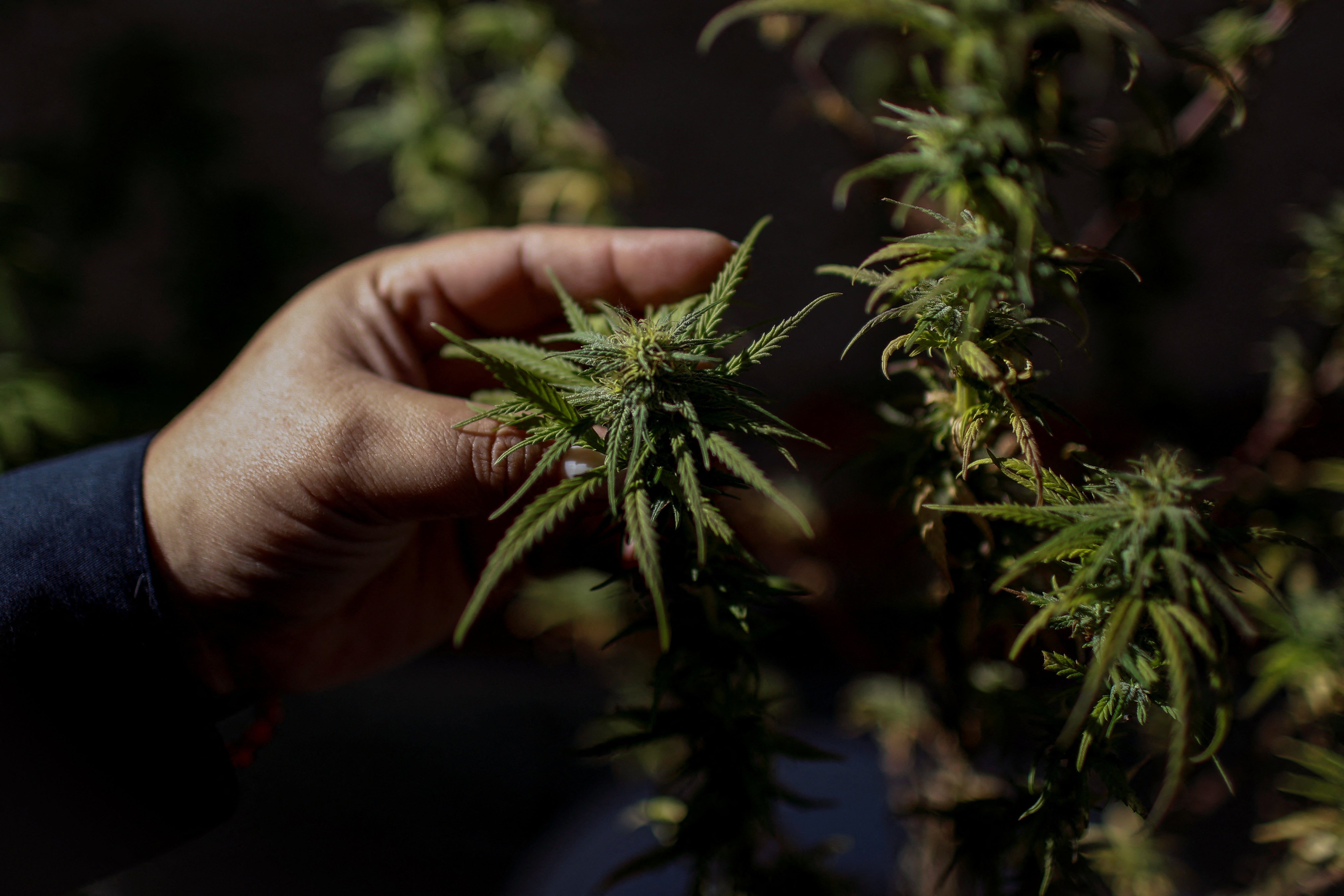
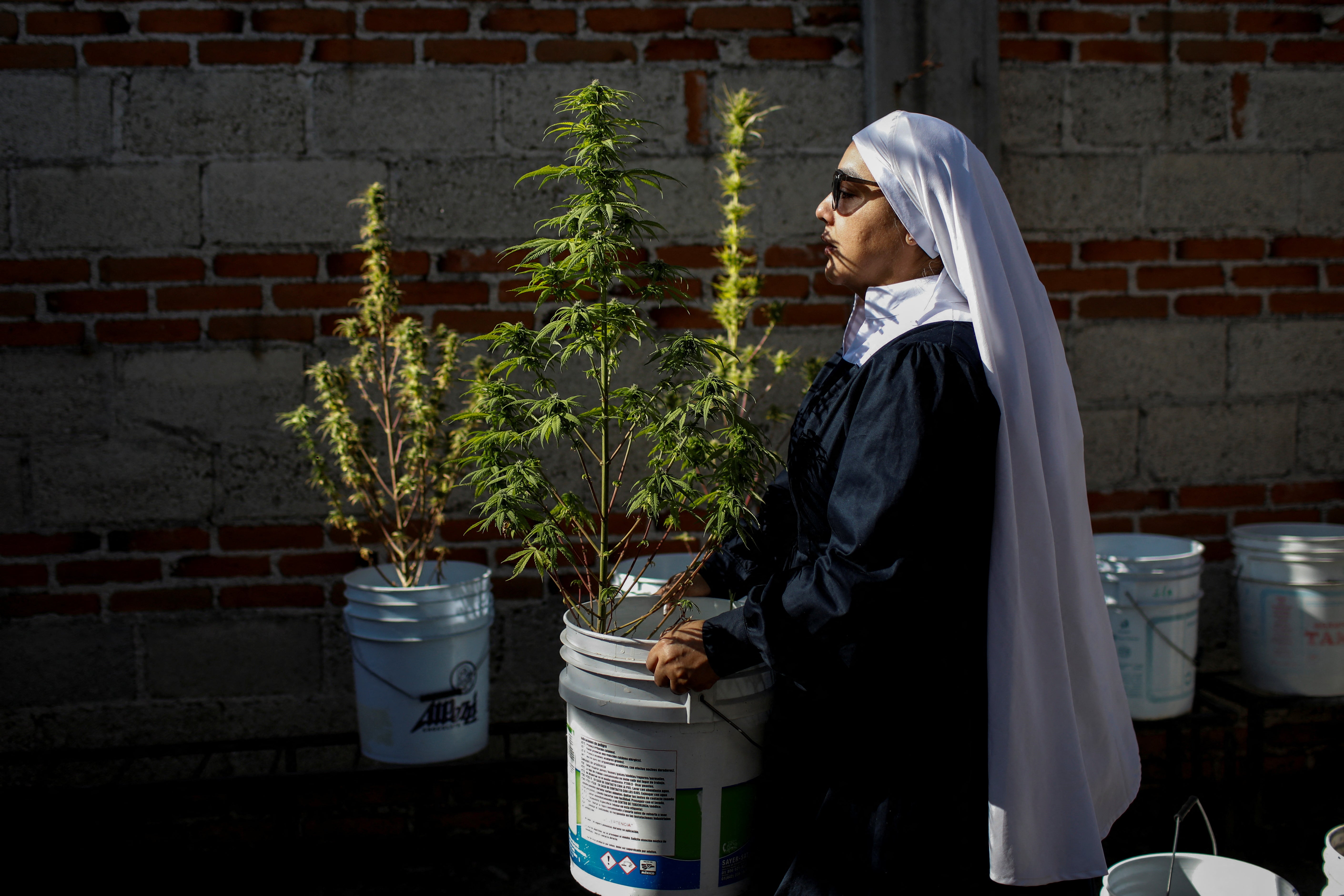
While prominent online, the women – five in total – are cautious about giving away too much about the location of their operations. They conduct business out of a two-story concrete false storefront with one finished room.
Because cannabis sits in a legal grey area in Mexico and much of its production is still tied to criminal organisations, they worry police or local gangsters could arrive to threaten or extort them.
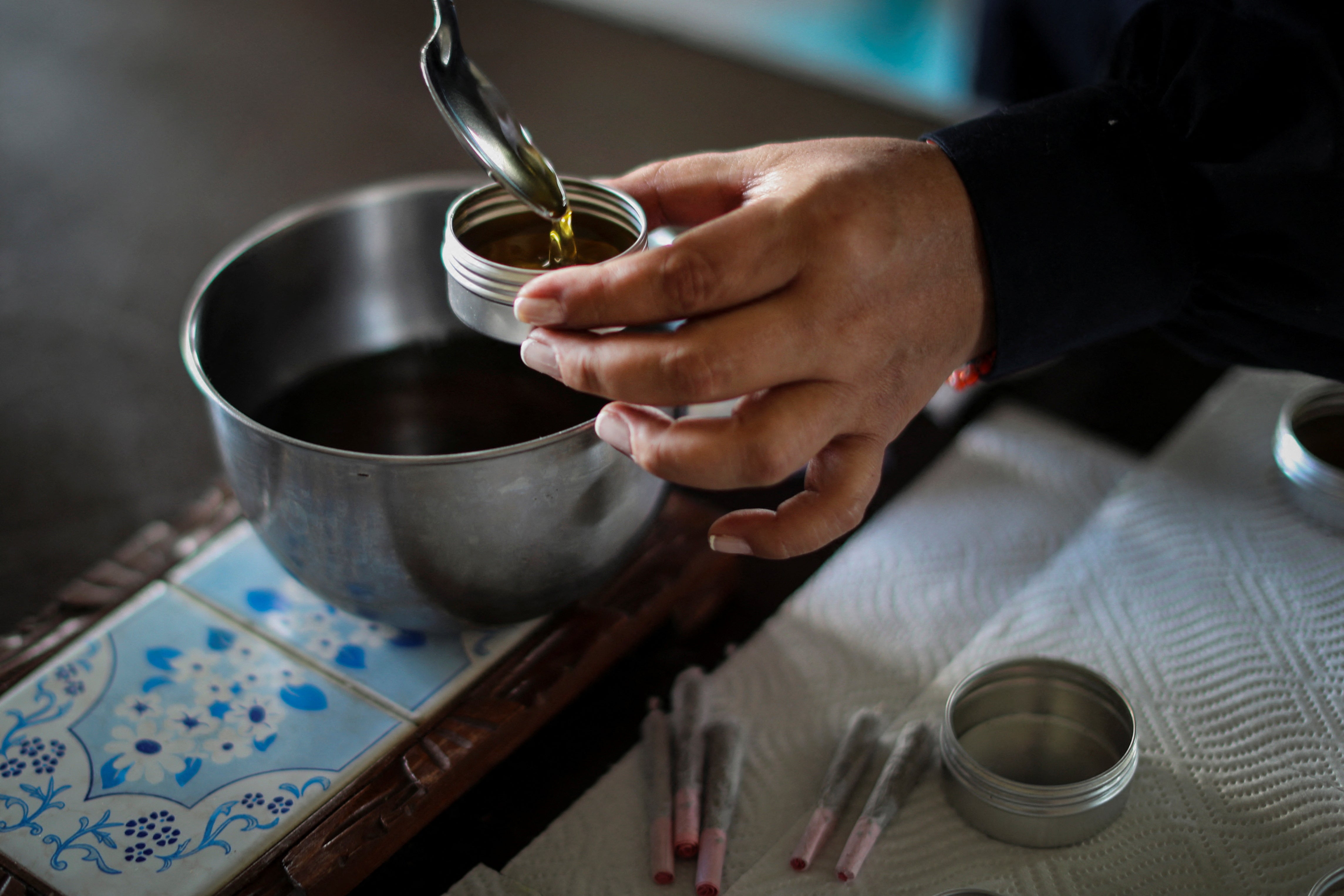
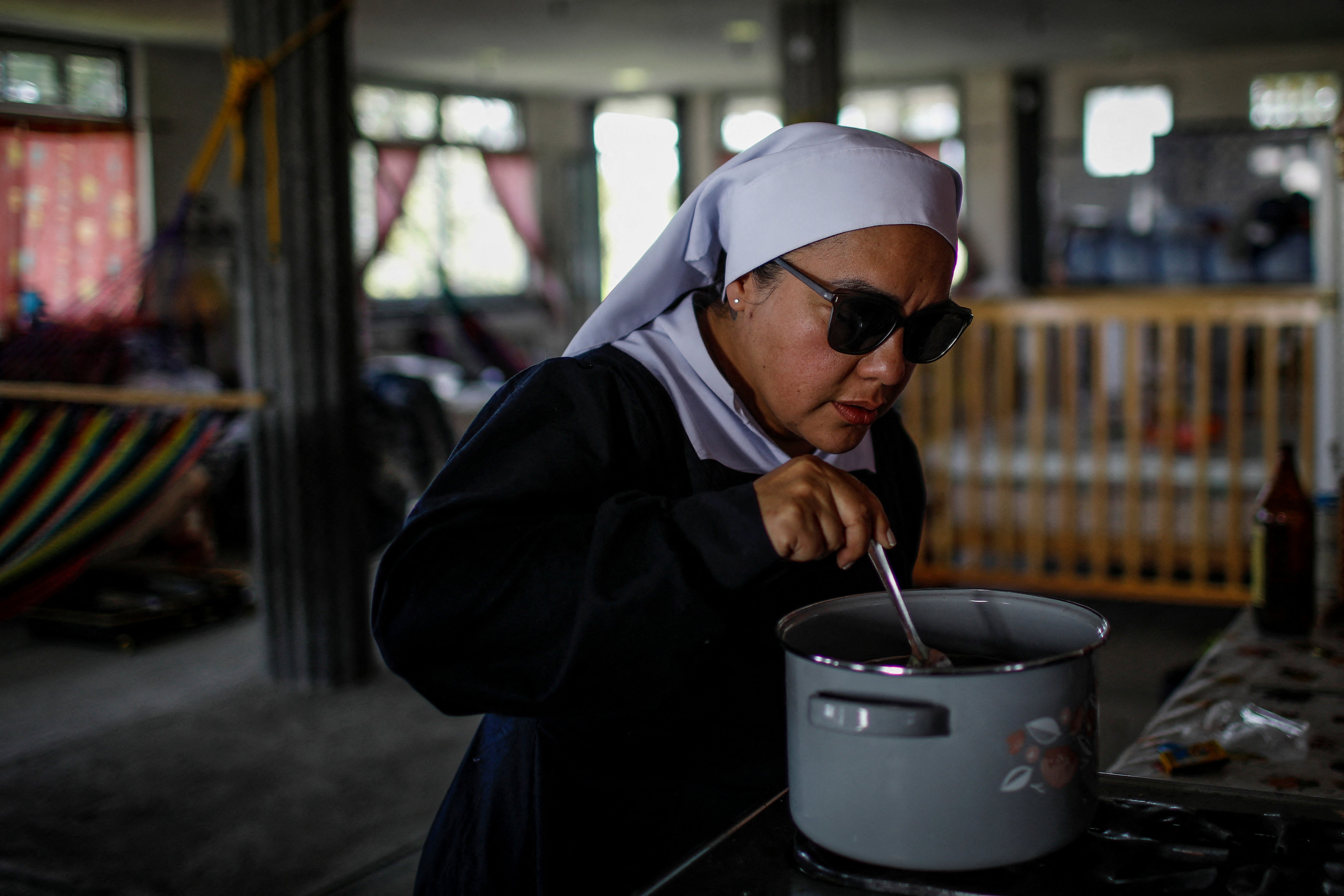
On the weekend when Reuters visits, the curtains remain drawn. Bundles of marijuana dry in clandestine crevices – hanging from a tucked-away laundry line, or hidden in the stove.
“The sisterhood is in a totally different context here in Mexico – because of how religious the country is and because of the plant’s ties to cartels,” says one of the nuns, who uses the moniker “Sister Bernardet” online and asked not to give her name for fear of reprisal.
In her main job as a homeopathic practitioner, she prescribes marijuana to her patients with cancer, joint pain and insomnia.
“We want to take the plant back from the narcos,” she says.
Reuters
Join our commenting forum
Join thought-provoking conversations, follow other Independent readers and see their replies
Comments
Bookmark popover
Removed from bookmarks